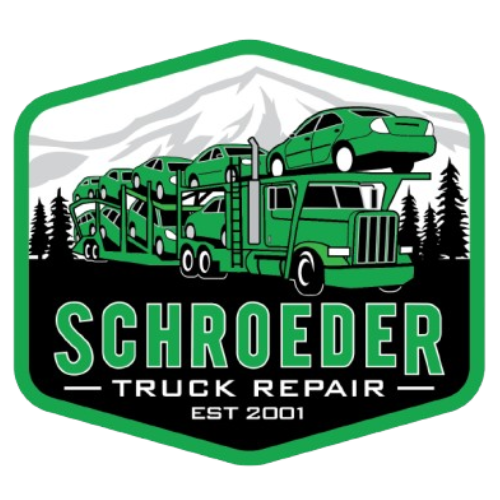Keeping Your Fleet Safe and Sound

As a Fleet Manager in Denver, you understand the critical balance between keeping your trucks on the road and ensuring the safety of your drivers and the public. Downtime due to mechanical issues not only impacts your bottom line but can also pose significant safety risks. Similarly, neglecting safety protocols can lead to accidents, injuries, and costly liabilities. This post will delve into the importance of proactive maintenance and robust safety programs, highlighting how they work hand-in-hand to optimize your fleet's performance and minimize risks.
The Proactive Approach: Preventing Downtime and Enhancing Safety
Waiting for a breakdown is a costly and potentially dangerous strategy. Implementing a proactive maintenance schedule is paramount for any efficient and safe fleet operation. Regular inspections and preventative maintenance can identify potential issues before they escalate into major problems on the road. This not only reduces unexpected downtime but also ensures your vehicles are operating at peak performance, contributing to safer driving conditions.
When issues do arise, having access to reliable and efficient repair services is crucial. Whether it's a routine oil change or a more complex engine overhaul, partnering with a trusted provider for heavy-duty truck repair is an investment in your fleet's longevity and safety. A skilled technician can diagnose problems accurately and perform repairs to the highest standards, ensuring your trucks are safe and compliant.
Building a Culture of Safety: Beyond the Mechanical
While maintaining your vehicles is essential, the human element is equally, if not more, critical to fleet safety. Implementing and enforcing comprehensive safety programs is not just a regulatory requirement; it's a fundamental responsibility that protects your drivers, your business, and the community. This includes several key components:
- Driver Training: Laying the Foundation for Safe Operations: Thorough and ongoing driver training is the cornerstone of any effective safety program. This should cover not only the technical aspects of operating the vehicles but also defensive driving techniques, understanding and adhering to traffic laws, and company-specific safety procedures. Regular refresher courses and specialized training for handling different types of cargo or challenging road conditions are also vital.
- Monitoring Driving Behavior: Leveraging Technology for Enhanced Safety: Modern telematics systems offer invaluable tools for monitoring driving behavior in real-time. This technology can track metrics such as speed, harsh braking, sudden acceleration, and idling time. By analyzing this data, you can identify trends, pinpoint areas where drivers may need additional training or coaching, and proactively address potentially risky habits before they lead to incidents.
- Addressing Risky Practices: A Proactive and Consistent Approach: Identifying and addressing risky driving practices is crucial for preventing accidents. This requires a clear and consistently enforced disciplinary policy. When monitoring systems flag unsafe behaviors, it's important to have a process in place for investigation, feedback, and corrective action. This could range from verbal warnings and additional training to more serious consequences for repeated or severe violations. Creating a culture where safety is prioritized and risky behaviors are not tolerated is essential.
The Synergy of Maintenance and Safety Programs
Proactive maintenance and robust safety programs are not isolated initiatives; they are interconnected and mutually reinforcing. A well-maintained vehicle is inherently safer to operate. Properly trained drivers are more likely to identify and report potential mechanical issues early on, preventing minor problems from becoming major safety hazards.
By investing in both the mechanical upkeep of your fleet and the ongoing safety education and monitoring of your drivers, you create a powerful synergy that leads to:
- Reduced Accidents and Injuries: Protecting your drivers and the public.
- Lower Operating Costs: Minimizing downtime, repairs, and insurance premiums.
- Improved Compliance: Meeting and exceeding regulatory requirements.
- Enhanced Reputation: Building trust with customers and the community.
Conclusion: Investing in a Safer and More Efficient Future
As a Fleet Manager in Denver, prioritizing both proactive semi truck repair, using a certified diesel mechanic and the diligent implementation and enforcement of safety programs, including driver training, monitoring driving behavior, and addressing risky practices, is not just a best practice – it's a necessity. By embracing this holistic approach, you can ensure a safer, more efficient, and ultimately more successful future for your fleet. Don't wait for an incident to highlight the importance of these crucial elements; make them a cornerstone of your operational strategy today.
Need a Truck Repair Quote?
Visit us in person or get in touch. We're open Monday to Friday, 7AM-5PM. Or click here to schedule a service.


